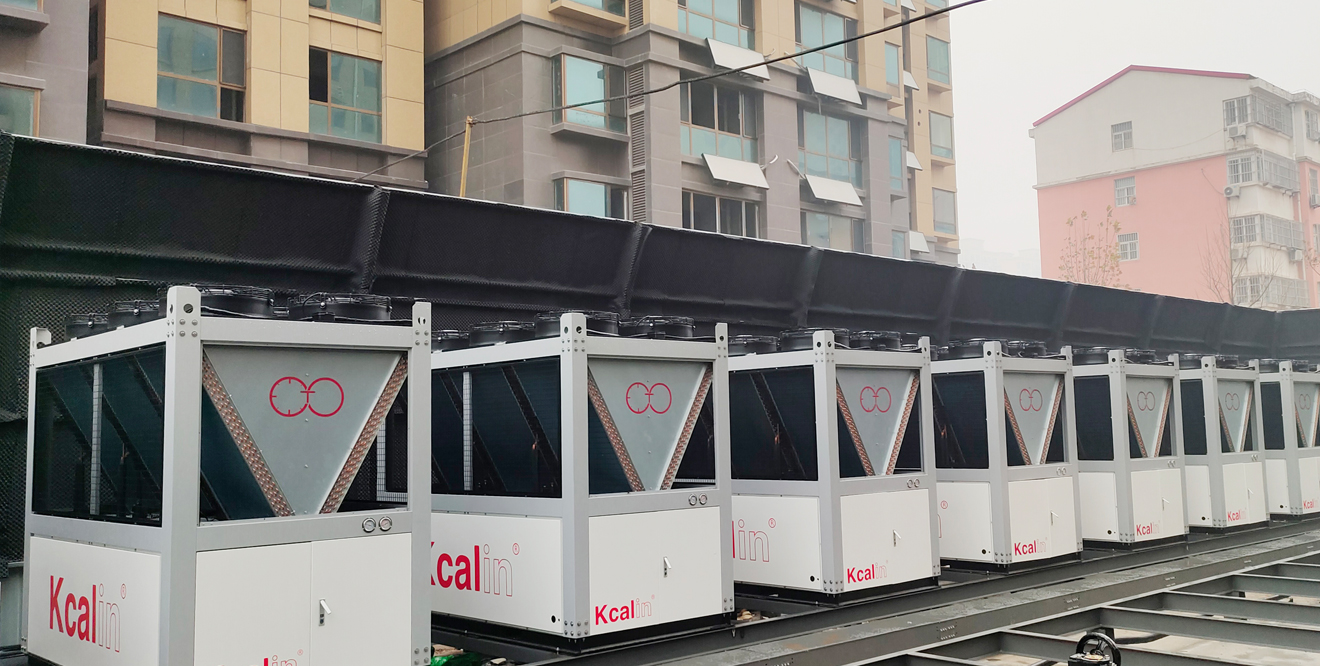Air source heat pump, geothermal heat pump and water source heat pump are three different types of heat pump systems. They all use renewable energy to heat or cool buildings, and are considered environmentally friendly and energy-efficient heating and cooling solutions. However, the design and working principles of these systems vary, and they will be introduced in detail below.
Air source heat pumps are one of the common heat pump systems because they are relatively inexpensive and easy to install and maintain. The working principle of an air source heat pump is the same as that of an air conditioner, which heats or cools indoor air by extracting heat from outdoor air. Air source heat pumps have two main components: outdoor units and indoor units. Outdoor units include compressors, condensers, and evaporators, while indoor units include evaporators and fans. Air source heat pumps are suitable for use in warm climates as their efficiency decreases with the decrease of temperature.

Geothermal heat pump is an efficient heating and cooling system, which uses underground heat to heat or cool buildings. This system requires the installation of a ground source circuit underground, usually a series of buried pipelines. The ground source circuit absorbs geothermal energy through groundwater or underground soil. The working principle of geothermal heat pump is to transfer geothermal energy to the heat pump system, and then transfer heat to the indoor air through the compressor, condenser and evaporator. The advantage of geothermal heat pump is that it can be used in various climatic conditions and can provide more stable temperature control.
Water source heat pump is a heat pump system that uses water heat, typically using lakes, rivers, groundwater, or underground reservoirs. The working principle of water source heat pump is similar to that of geothermal heat pump, but they use water as the heat source. The main advantage of water source heat pumps is that they can be used in various climatic conditions and are usually more efficient than air source heat pumps. However, installing and maintaining a water source heat pump system requires higher costs.
Overall, these three heat pump systems differ in terms of efficiency, cost, and installation requirements. Here are some comparisons between them:
Efficiency: geothermal heat pump is usually more efficient than air source heat pump because the underground temperature is relatively stable. Water source heat pump is also generally more efficient than air source heat pump, but slightly lower than geothermal heat pump.
Cost: Air source heat pumps are the cheaper of the three types of heat pump systems because their installation and maintenance costs are relatively low. Geothermal heat pump are more expensive because they need to install pipes underground. The cost of water source heat pump is between air source heat pump and geothermal heat pump.
Installation requirements: The installation of air source heat pumps and water source heat pumps is relatively simple, requiring only the installation of indoor and outdoor units. The installation of geothermal heat pump requires excavation of underground pipelines, which requires longer time and higher cost.
In summary, the choice of a heat pump system depends on various factors, including budget, geographical location, and climatic conditions. For most users, air source heat pump is an economical choice. For users who need more efficient and stable temperature control, they can choose geothermal heat pump or water source heat pump.







Comment